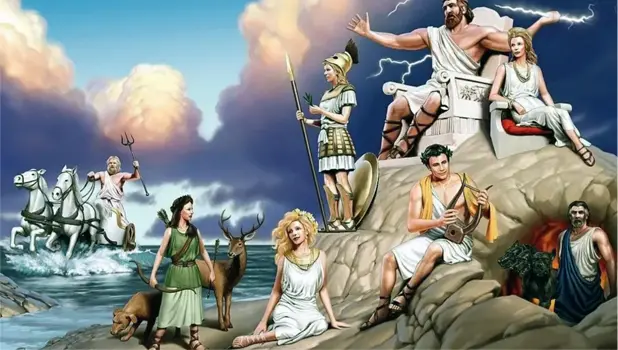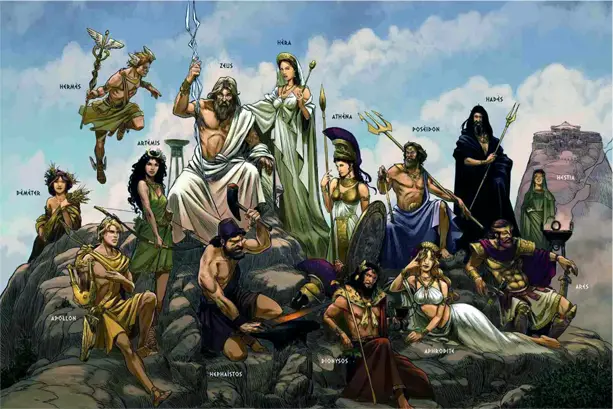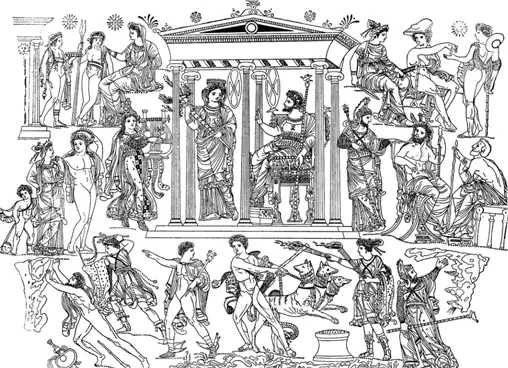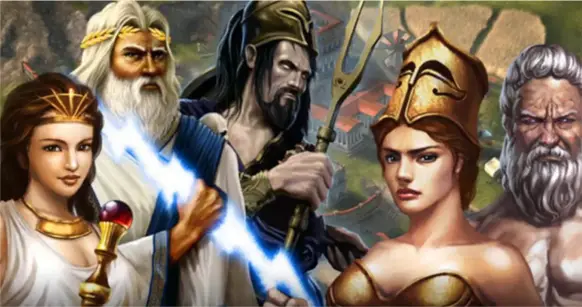Ancient Greek Legends in Schools: Lessons from the World of Gods and Heroes
- Detalles
- Categoría: Secretaría
- Visitas: 8932
Ancient mythology has always been an essential part of educational programs, helping to explain complex philosophical and moral concepts. For instance, the game Gates of Olympus employs visual and thematic symbolism inspired by ancient Greek myths, which can be a useful tool when studying classical culture.
The Importance of Mythology in Education

Greek mythology lays the foundation for understanding the past and contributes to the development of critical thinking skills. It is studied in educational institutions like IES Herminio Almendros in Spain, where students become familiar with key mythological figures and stories, such as Zeus, Athena, and Heracles. Curricula often include literature by Homer and Hesiod, as well as visual sources like illustrations on ancient vases.
Mythology not only reveals cultural and historical aspects but also helps students grasp universal values. For example, the story of Prometheus teaches about sacrifices made for progress, while the myths of Icarus emphasize the importance of moderation. In educational practice, these narratives can be linked to discussions of modern ethical dilemmas and scientific advancements.
Additionally, mythology plays a significant role in understanding artistic language. Ancient themes are frequently used in painting, sculpture, and architecture. Students study works by great masters like Raphael and Rubens, who drew inspiration from ancient myths. This enables a deeper understanding of not only antiquity but also humanity's cultural evolution.
Modern Approaches to Studying Mythology

With advances in technology, educational institutions are employing interactive teaching methods. These include:
- Virtual tours of ancient Greek monuments, such as 3D reconstructions of the Parthenon. These technologies allow students to visualize temples, sculptures, and other artifacts as they once were.
- Interactive games and applications that immerse students in the ancient world. Such projects spark interest in history and encourage independent learning.
At IES Herminio Almendros, projects linking mythology to other subjects like art and literature are also being implemented. Students create presentations, analyze texts, and participate in theatrical performances where mythological stories come to life. These activities not only enhance knowledge but also foster creativity, teamwork, and critical thinking skills.
The Role of Mythology in Modern Culture

Today, myths remain a vital part of popular culture, inspiring books, movies, and video games. For example, films frequently draw on motifs from ancient Greek legends. "Troy," "300," and "Percy Jackson" are just a few examples of successful adaptations.
Their relevance is also reflected in educational contexts: students learn more easily when material is connected to popular cultural phenomena. Even entertainment like Gates of Olympus demonstrates how ancient imagery can become a tool for engaging interest in classical studies. This highlights the importance of maintaining a connection between traditional culture and modern technology.
Examples of Integrating Mythology into Education: From Classical Methods to Innovations

Mythology enables the creation of interdisciplinary projects that combine history, literature, and art. For example, within the framework of one such project, students can:
- Study the architecture of ancient Greek temples and recreate their models in technology classes. This helps not only to understand architectural principles but also to develop engineering skills.
- Analyze the narratives of tragedies by Aeschylus and Sophocles in literature classes, discussing their relevance to contemporary social issues.
- Create visual projects, such as illustrations of myths, in art classes, fostering aesthetic appreciation and hands-on skills with diverse materials.
Some schools organize thematic days dedicated to antiquity, where students dress up in ancient Greek costumes, learn the basics of the Greek language, prepare dishes based on ancient recipes, and participate in theatrical performances. These activities help create a living connection with the past and make learning both engaging and memorable.
Thus, mythology is not only a key to understanding the past but also a means of enriching the present. Its inclusion in the educational process helps develop well-rounded individuals capable of understanding the cultural and historical aspects of the world’s heritage.



